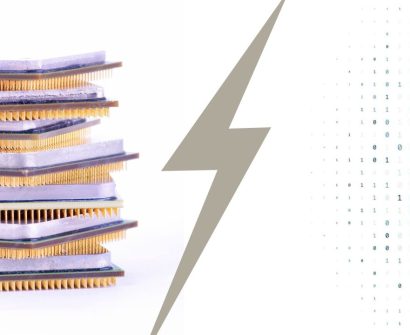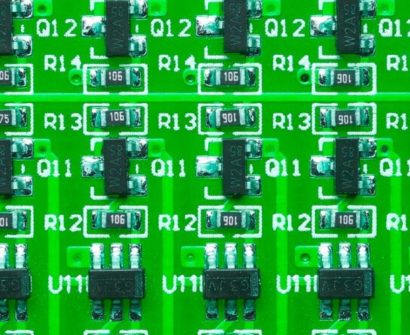
The world of Very-Large-Scale Integration (VLSI) design is rapidly evolving, driven by the demand for smaller, faster, and more efficient electronic devices. For those looking to carve out a career in this exciting field, choosing the right VLSI course is crucial. In this article, we will explore the best VLSI courses available, focusing on their unique features, benefits, and why they stand out.
Why VLSI?
Before diving into the courses, let’s briefly understand why VLSI is a sought-after field. VLSI design involves creating integrated circuits by combining thousands of transistors into a single chip. This technology is the backbone of modern electronics, from smartphones to high-performance computing systems. A career in VLSI offers a chance to work on cutting-edge technology and innovation, with competitive salaries to match. According to Glassdoor, the average annual salary for VLSI engineers ranges from $80,000 to $150,000, depending on experience and specialization.
Top VLSI Courses
1. Digital VLSI Design
Why It’s Great: This course covers fundamental concepts in digital VLSI design, including CMOS technology, logic gates, and circuit design. It’s well-structured and offers hands-on projects that simulate real-world scenarios. Career Impact: Professionals with expertise in digital VLSI design can expect starting salaries around $80,000, with potential for significant growth.
2. Analog VLSI Design
Why It’s Great: Analog design is crucial for creating efficient and high-performance circuits. This course delves into the intricacies of analog circuit design, layout, and simulation, making it perfect for those looking to specialize in this niche. Career Impact: Analog VLSI designers often command higher salaries, with average earnings around $90,000 to $120,000 annually.
3. SystemVerilog for Verification
Why It’s Great: SystemVerilog is a hardware description and verification language. This course is comprehensive and focuses on both theoretical and practical aspects, ensuring a solid foundation in verification techniques. Career Impact: Verification engineers are in high demand, with salaries typically ranging from $85,000 to $130,000.
4. VLSI Physical Design
Why It’s Great: Physical design is a critical phase in the VLSI design flow. This course offers in-depth knowledge of placement, routing, and optimization techniques. It’s ideal for those aiming to work in physical design and implementation. Career Impact: Physical design engineers can expect starting salaries around $90,000, with experienced professionals earning upwards of $140,000.
5. FPGA Design for Embedded Systems
Why It’s Great: Field Programmable Gate Arrays (FPGAs) are essential in prototyping and embedded systems. This course provides a solid understanding of FPGA architecture, design, and applications in embedded systems. Career Impact: FPGA engineers enjoy competitive salaries, often ranging from $80,000 to $120,000.
6. ASIC Design Flow
Why It’s Great: Application-Specific Integrated Circuits (ASICs) are customized for specific tasks. This course covers the entire ASIC design flow, from RTL design to tape-out, providing comprehensive knowledge and practical experience. Career Impact: ASIC designers are highly valued, with salaries typically between $100,000 and $150,000.
7. VLSI Design Methodologies
Why It’s Great: This course offers a deep dive into various VLSI design methodologies, focusing on modern techniques and tools. It’s a great resource for self-learners looking to enhance their knowledge. Career Impact: Professionals with expertise in design methodologies can expect competitive salaries, averaging around $90,000 to $130,000.
8. Advanced VLSI Design
Why It’s Great: This course covers advanced topics in VLSI design, including low-power design techniques and VLSI testing. It’s well-structured and highly reputed. Career Impact: Advanced VLSI designers are in high demand, with salaries often ranging from $100,000 to $150,000.
How to Choose the Right Course
When selecting a VLSI course, consider the following factors:
- Your Current Level: Beginners should start with introductory courses, while those with some experience can opt for more advanced courses.
- Specialization: Decide whether you want to focus on digital, analog, physical design, or verification.
- Career Goals: Consider the specific roles and salary potential in each specialization.
- Certification: Check if the course offers a certification that can enhance your resume.
Conclusion
The best VLSI course for you depends on your career goals, current knowledge, and areas of interest. Whether you’re a beginner looking to enter the field or an experienced professional aiming to specialize, there are courses tailored to meet your needs. Investing in the right VLSI course can open doors to exciting career opportunities in the ever-evolving world of semiconductor technology.
Also Read : fpga architecture in vlsi
To know more about VLSI Course , SuccessBridge VLSI training institute. You can begin your VLSI career by enrolling in the placement-assisted live courses available at SuccessBridge We offer various VLSI online courses. We offer VLSI Physical Design course, Design Verification course, DFT Training , Chip design course many more. Explore VLSI Courses From The Leaders In VLSI Training






